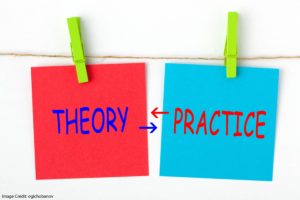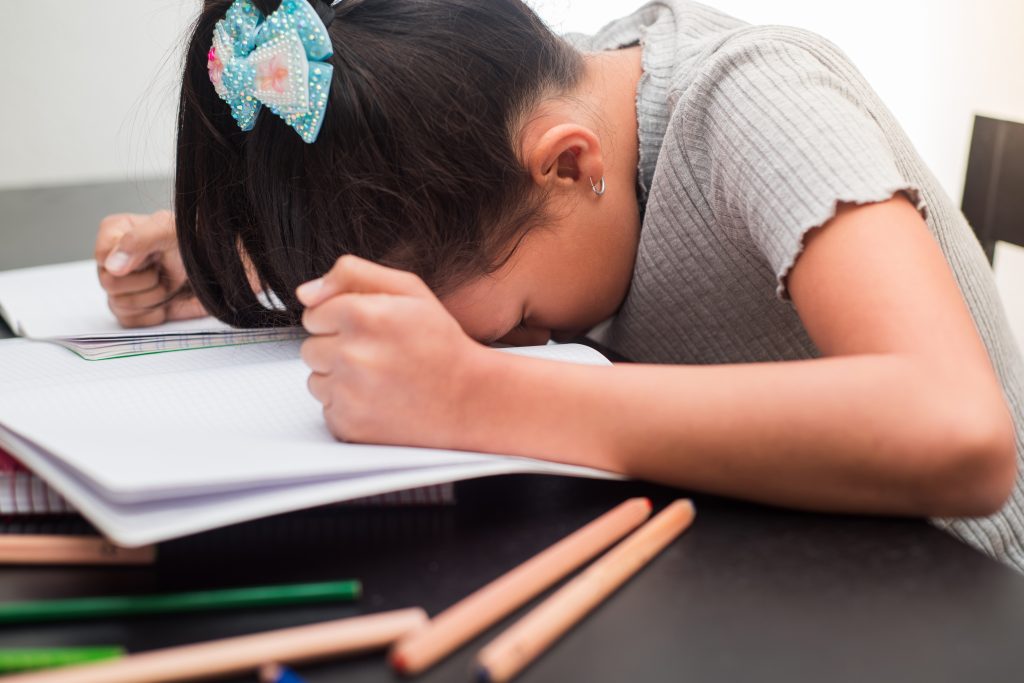In a blog post, David Didau raises concerns about “the problem with teachers’ judgment.”
Here goes:
If a brain expert offers me a teaching suggestion, I might respond: “Well, I know my students, and that technique just wouldn’t work with them.”
Alas, this rebuttal simply removes me from the realm of scientific discussion.
Scientific research functions only when a claim can be disproven. Yet the claim “I know my students better than you do” can’t be disproven.
Safe in this “I know my students” fortress, I can resist all outside guidance.
As Didau writes:
If, in the face of contradictory evidence, we [teachers] make the claim that a particular practice ‘works for me and my students’, then we are in danger of adopting an unfalsifiable position. We are free to define ‘works’ however we please.
It’s important to note: Didau isn’t arguing with a straw man. He’s responding to a tweet in which a former teacher proudly announces: “I taught 20 years without evidence or research…I chose to listen to my students.”
(Didau’s original post is a few years old; he recently linked to it to rebut this teacher’s bluff boast.)
Beware Teachers’ Judgment, Part 2
In their excellent book Understanding How We Learn, the Learning Scientists Yana Weinstein and Megan Sumeracki make a related pair of arguments.
They perceive in teachers “a huge distrust of any information that comes ‘from above’ “… and “a preference for relying on [teachers’] intuitions” (p. 22).
And yet, as they note,
There are two major problems that arise from a reliance on intuition.
The first is that our intuitions can lead us to pick the wrong learning strategies.
Second, once we land on a learning strategy, we tend to seek out “evidence” that favors the strategy we have picked. (p. 23)
Weinstein and Sumeracki cite lots of data supporting these concerns.
For instance, college students believe that rereading a textbook leads to more learning than does retrieval practice — even when their own experience shows the opposite.
The Problems with the Problem
I myself certainly agree that teachers should listen to guidance from psychology and neuroscience. Heck: I’ve spent more than 10 years making such research a part of my own teaching, and helping others do so too.
And yet, I worry that this perspective overstates its case.
Why? Because as I see it, we absolutely must rely on teachers’ judgment — and even intuition. Quite literally, we have no other choice. (I’m an English teacher. When I write “literally,” I mean literally.)
At a minimum, I see three ways that teachers’ judgments must be a cornerstone in teacher-researcher conversations.
Judgment #1: Context Always Matters
Researchers arrive at specific findings. And yet, the context in which we teach a) always matters, and b) almost never matches the context in which the research was done.
And therefore, we must rely on teachers’ judgments to translate the specific finding to our specific context.
For example: the estimable Nate Kornell has shown that the spacing effect applies to study with flashcards. In his research, students learned more by studying 1 pile of 20 flashcards than 4 piles of 5 flashcards. The bigger pile spaced out practice of specific flashcards, and thus yielded more learning.
So, clearly, we should always tell our students to study with decks of 20 flashcards.
No, we should not.
Kornell’s study showed that college students reviewing pairs of words learned more from 20-flashcard piles than 5-flashcard piles. But, I don’t teach college students. And: my students simply NEVER learn word pairs.
So: I think Kornell’s research gives us useful general guidance. Relatively large flashcard decks will probably result in more learning than relatively small ones. But, “relatively large” and “relatively small” will vary.
Doubtless, 2nd graders will want smaller decks than 9th graders.
Complex definitions will benefit from smaller decks than simple ones.
Flashcards with important historical dates can be studied in larger piles than flashcards with lengthy descriptions.
In every case, we have to rely on … yes … teachers’ judgments to translate a broad research principle to the specific classroom context.
Judgment #2: Combining Variables
Research works by isolating variables. Classrooms work by combining variables.
Who can best combine findings from various fields? Teachers.
So: we know from psychology research that interleaving improves learning.
We also know from psychology research that working memory overload impedes learning.
Let’s put those findings together and ask: at what point does too much interleaving lead to working memory overload?
It will be simply impossible for researchers to explore all possible combinations of interleaving within all levels of working memory challenge.
The best we can do: tell teachers about the benefits of interleaving, warn them about the dangers of WM overload – and let them use their judgment to find the right combination.
Judgment #3: Resolving Disputes
Some research findings point consistently in one direction. But, many research fields leave plenty of room for doubt, confusion, and contradiction.
For example: the field of retrieval practice is (seemingly) rock solid. We’ve got all sorts of research showing its effectiveness. I tell teachers and students about its benefits all the time.
And yet, we still don’t understand its boundary conditions well.
As I wrote last week, we do know that RP improves memory of specifically tested facts and processes. But we don’t know if it improves memory of facts and processes adjacent to the ones that got tested.
This study says it does. This one says it doesn’t.
So: what should the teacher do right now, before we get a consistent research answer? We should hear about the current research, and then use our best judgment.
One Final Point
People who don’t want to rely on teacherly judgment might respond thus: “well, teachers have to be willing to listen to research, and to make changes to their practice based upon it.”
For example, that teacher who boasted about ignoring research is no model for our work.
I heartily – EMPHATICALLY – agree with that point of view.
At the same time, I ask this question: “why would teachers listen to research-based guidance if those offering it routinely belittle our judgment in the first place?”
If we start by telling teachers that their judgment is not to be trusted, we can’t be surprised that they respond with “a huge distrust of any information that comes ‘from above’.”
So, here’s my suggestion: the field of Mind, Brain, Education should emphasize equal partnership.
Teachers: listen respectfully to relevant psychology and neuroscience research. Be willing to make changes to your practice based upon it.
Psychology and neuroscience researchers: listen respectfully to teachers’ experience. Be up front about the limits of your knowledge and its applicability.
Made wiser by these many points of view, we can all trust each other to do our best within our fields of expertise.





